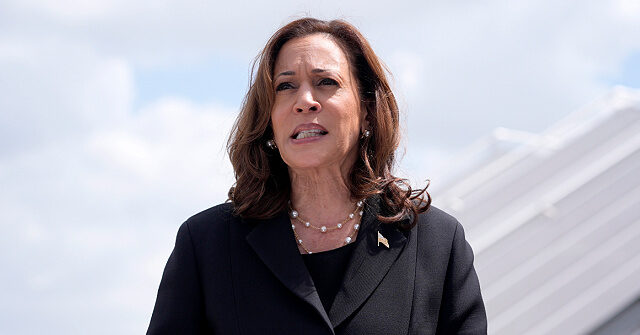On Friday’s broadcast of MSNBC’s “Chris Jansing Reports,” Harris-Walz Campaign Senior Economic Adviser Gene Sperling responded to a question on how 2024 Democratic presidential candidate Vice President Kamala Harris plans to define “price gouging” by stating that “we’re not trying to do every detail.”
Host Katy Tur asked, “I want to go back to price gouging at the grocery store. Can you tell me how VP Harris will define price gouging?”
Sperling responded, “Well, we’re not trying to do every detail. But let’s note a couple of things: The Census showed that, and our Council of Economic Advisers showed that, in February, you were still seeing profit margins at the highest level in 20 years. The New York Fed showed that, even when costs were pretty stable, that retail margins were going up 50%. Look, she’s a sophisticated person about markets. She knows people use pricing power. She knows prices go up and down. What she did when she was attorney general of California, she wasn’t out there trying to set prices for people. She was going after bad behavior, whether it was Corinthian, a for-profit college, whether it was pharmaceuticals, whether it was the big banks, where she got the $20 billion settlement. So, she’s going to be looking for bad behavior, and I think, look, we went through the pandemic. You saw millions of American frontline workers put their lives on the line. There’s just not a lot of toleration for people deciding that, when their costs and supply chain issues are coming down, that they’re going to jack up their profit margins, as opposed to pass on those savings to working families.”
Tur then said, “[A]ccording to the analysis that I’ve read — and I can see you’re much more well-versed on this than I am — it’s not just price gouging, it’s supply chain issues, it’s cost issues at the farm level. There’s all sorts of stuff that goes into how much a bunch of bananas costs at the grocery store. It’s not just a corporation saying, I want these bananas to be $1 each instead of $0.50.”
Sperling responded, “Absolutely, and Katy, that’s why I mentioned profit margins being higher than they’ve been in 20 years. If your costs are high because of supply chains or the war in Ukraine, yes, we understand that will lead prices to be higher. But when your profit margins are higher than historically, that means that, even with your costs, you’re making a decision to keep prices and profit margins high, as opposed to passing those on at lower prices. And we think that there are examples in the middleman area where there are markups, where there are paybacks. So, what I would say to people is she is not doing this to try to, like, have the government, like, in any way make determinations on all pricing power and markets going up and down. She wants the federal government to have the power to signal to companies, particularly when we’re in a time of crisis, that we are going to be looking for illegal behavior, negative, unfair behavior where you’re taking advantage of a crisis to jack up…profits at the expense of working families who still feel, rightly, that they are still paying too much for basic things like meat and eggs.”
Follow Ian Hanchett on Twitter @IanHanchett
